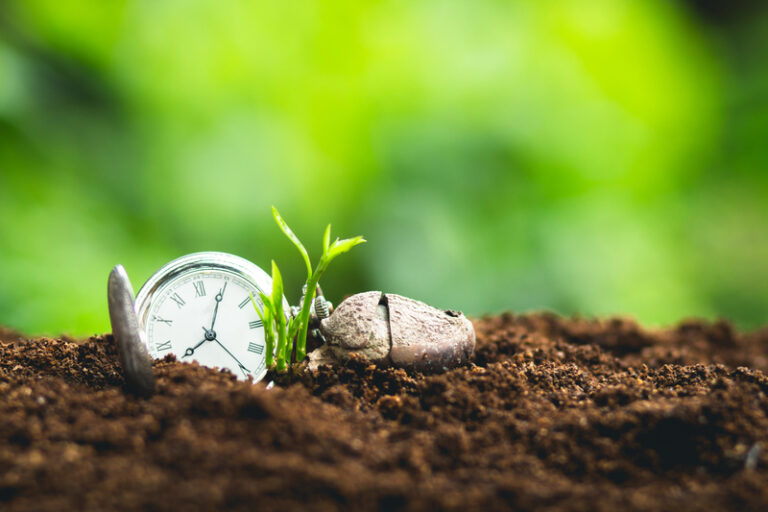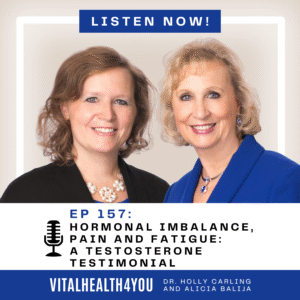After a long winter and frustrating spring, we are exuberantly working to get our fields and gardens planted. Some will spend time planning just the right colors, textures, heights and maybe even fragrances in their flower gardens. Others are planting vegetables and herbs. Maybe they are trying new varieties, or planting old favorites, or even some of the varieties planted by our ancestors decades or centuries ago that are popular recently. A lot of time and effort goes into the process. Do we put the same effort into our health? Do we have a strategy for growing our seeds of health?
It’s highly unusual that you can just throw seeds into the wind and have a productive crop, especially in a small garden. You can attempt it, but rarely will you get the desired results. No, it takes work to get a satisfying yield. Yet, the work can be enjoyable and worth every effort. But it starts with a plan, and that plan starts with preparing the soil.
If you really want to do it right, you’ll get a soil sample out to get evaluated, and recommendations made so that you have the perfect growing medium (visit the Kootenai County Extension Office, Master Gardener Clinic to get a test kit). The other option is to just buy compost or a natural fertilizer based on guess work and hope you’re not wasting your precious money. The condition of the soil – the composition of sand, silt, and clay is the best place to start. You don’t want your plants feet soggy all the time, nor do they like to be dry. Then, to have healthy plants, you need the right combination of nutrients – and not just N-P-K either. All the minerals in the proper proportions are necessary for the plant to be healthy. Next, you want to protect them – from insects, overgrowth of other wanted or unwanted plants, the stress of over or under watering or the stress of too much or too little sun.
The miracle of plant life parallels the miracle of human life. We too need to have our “soils” evaluated. Typically, we use lab tests to determine if we are heading for, or in, a health crisis. Our body “soil” can be stressed physiologically, emotionally, physically or chemically if the right conditions don’t exist.
This is where you really need a health detective. What’s wrong? Is it a soil problem? Nutrients? Water? Sun? A good health detective is going to look at all the factors, and not just the symptom, such as the bug. Then a good strategy is put into place for growing the seeds of health. Then and only then will you be truly healthy and vital! We will look at several of these factors in Part II of Planting the Seeds of Health.
Part II
In Part I of Planting the Seeds of Health, we were talking about how the miracle of plant life parallels the miracle of human life. To have healthy plants, we have to address the soil and environment that may be stressing it. We too need to have our “soils” evaluated. Typically, we use lab tests to determine if we are heading for, or in, a health crisis. Our body “soil” can be stressed in many ways.
If we are consuming an excess of acid-producing foods, for instance, and our pH is too low as a result, some “soils” just don’t do well. Too acidic or too alkaline can mean trouble. If our blood is too thick due to excess glucose, triglycerides, cholesterol, dehydration, excess protein or blood cells, it is not unlike the stress plants undergo when the conditions are not optimal for supporting healthy plants.
Stress kills. It is no different in our plants as it is in the human body. When a plant is stressed, it sends out a chemical message that attracts insects. The insects then prey on the plant, weakening it more, unless someone comes along with a remedy. If that remedy is chemicals, that may reduce the insect population, but it does nothing to correct the stress that caused the insects to invade in the first place. The body is quite similar. When the body is stressed internally or externally, the immune system is less effective at keeping bacteria and viruses in check. The more stress, or if the stress isn’t relieved, the unwanted microbes proliferate and disease results. Throwing chemicals at it (drugs) doesn’t address the reason for the stress, even if the microbes are annihilated. The problem will still exist.
What about nutrients? Just as a plant needs a healthy array of nutrients to survive and thrive, so does the human body. Throwing nutrients at it randomly, due to eating garbage “foods” without creating the right conditions is like throwing seeds in the wind. We need a plan. A daily plan. Three good, solid, meals per day is a plan. Not processed, hope-the-nutrients-stick, eat-and-get-going foods, but real, balanced, fresh foods. Every day we are building soil. We are either building healthy soil internally, or we are building weak, disease-prone soil. Every day, every meal, makes a difference in our disease susceptibility.
When sick, we research like crazy to find that perfect pill, perfect diet, or perfect exercise to heal the condition. While this is great and can be quite helpful, finding the causative elements still get largely ignored. Then a theory is conjured up and whatever magic pill fits the symptom gets taken. Many times it works out great symptomatically, but was the problem ever addressed?
This is where you really need a health detective. What’s wrong? Is it a soil problem? Nutrients? Water? Sun? A good health detective is going to look at all the factors, and not just the symptom, such as the bug. Then a good strategy is put into place for growing the seeds of health. Then and only then will you be truly healthy and vital!
©2017 Holly A. Carling, O.M.D., L.Ac., Ph.D.







